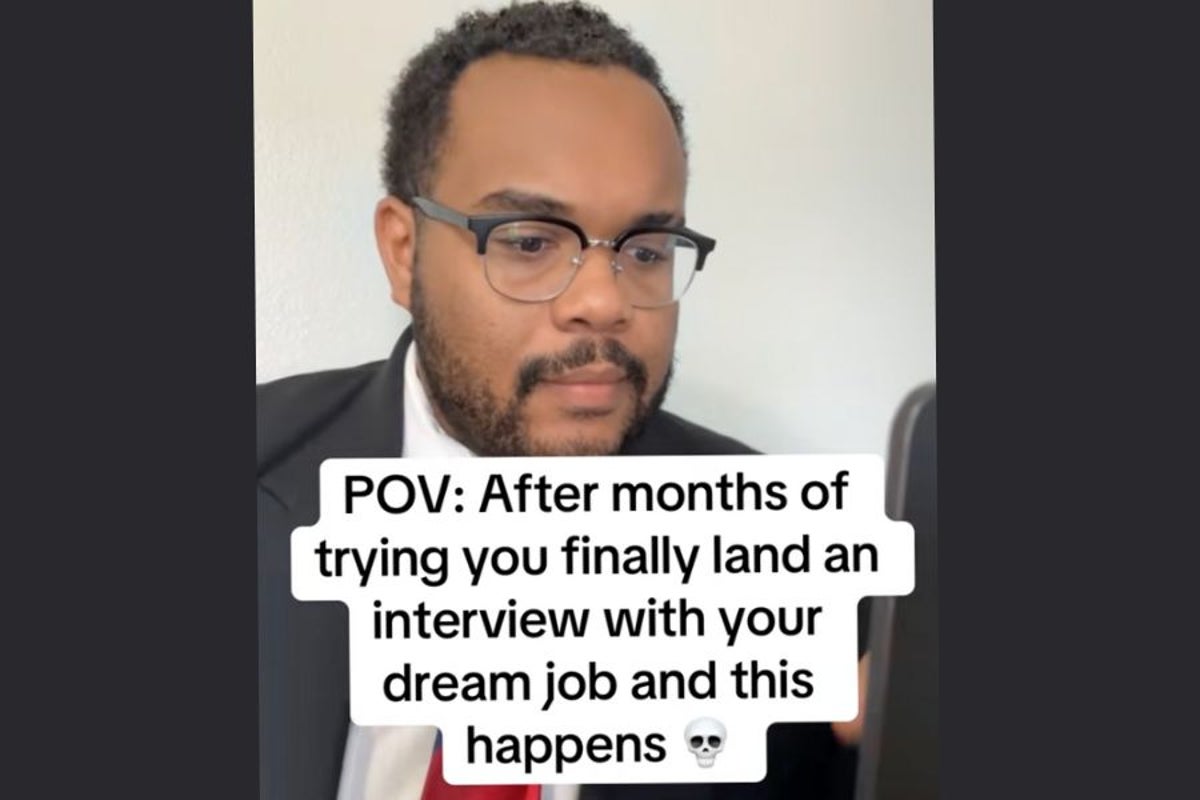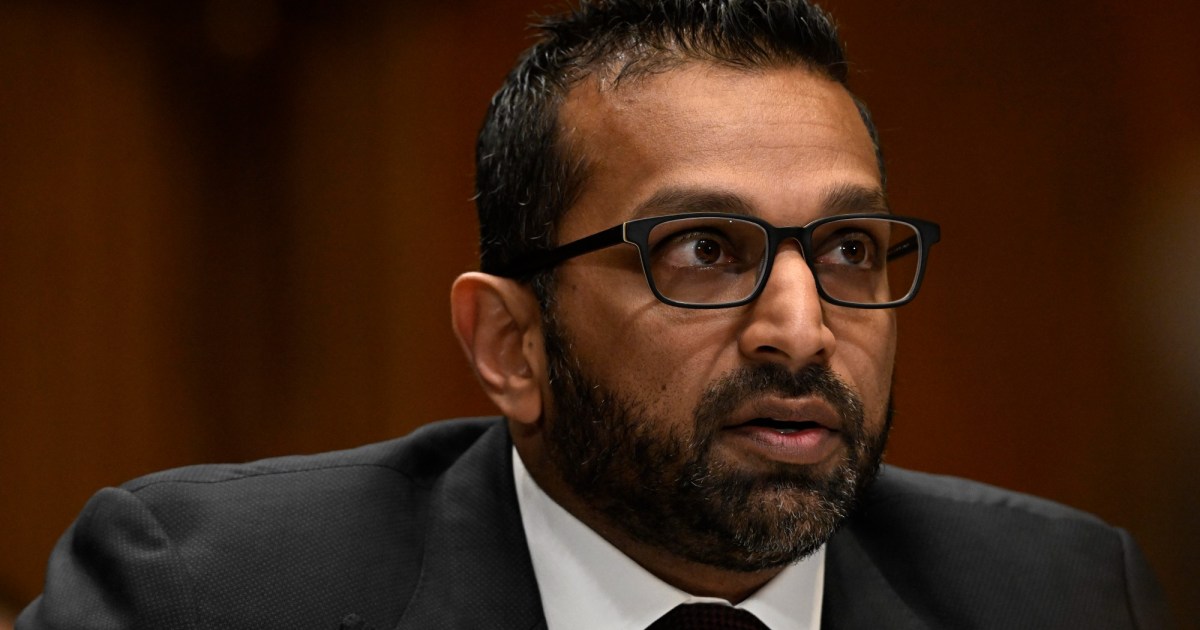In 2022, Florida Republicans enacted the Stop WOKE Act, which sought to remove from school curriculums any lessons that might cause students to feel “discomfort,” “guilt,” or any other “psychological distress” because of their race. It went without saying that the legislation’s authors were referring to white students who might experience a sad feeling because of what their ancestors did to Black people in the United States. Instead of bummer stuff like the enduring legacy of slavery, the bill required teaching that individuals do not “bear responsibility for actions committed in the past by other members of the same race or sex.”
“The Trump administration and its supporters want to redirect the attention to the parents.”
The law was an attempt to erase the history of discrimination from the public consciousness and with it the collective will to correct the unfairness that has stalked our society as a result. The irony, of course, is that the law’s odes to merit, equality, and a fresh start for everyone were being used to achieve a less fair, less meritocratic society in which fresh starts are handicapped by past discrimination.
Regardless, the ethos they were appealing to is real and deeply embedded in American culture and law, all the way back to the Constitution itself: Each individual deserves equal treatment, regardless of the sins of their ancestors. On the Supreme Court, Republican-appointed justices have wielded this definition of equality to roll back laws and policies that sought to make our society more equal, from affirmative action in college admissions to voting rights. Still, the idea that people should’t be punished for the actions of their parents is a noble one, even if it is often weaponized for opposite purposes.
On Thursday, the Supreme Court will hear oral arguments over President Donald Trump’s executive order that seeks to withhold birthright citizenship from children born to both undocumented immigrants and visa holders. Technically, the court is considering whether to allow the executive order to take effect for those who have not challenged it while the courts consider whether the order is legal. But it will be impossible for the court to consider this technical question without also considering whether it is likely to ultimately uphold or strike down the order.
The Trump administration’s argument limits the citizenship rights of children based on the actions and status of their parents. The argument is striking, as it contradicts the notion of an equality completely independent of the past that the Republican Party and its six justice majority on the court have embraced. If the Supreme Court sides with the administration’s argument, it will be opportunistically eschewing a principle it has championed again and again in recent years to advance the GOP’s agenda: That children don’t inherit the sins or status of their forefathers.
“It’s definitely inconsistent with a long standing conservative principle that we’re all individuals, and the Constitution and the Equal Protection Clause in particular, protect individuals, not groups,” says Cristina Rodríguez, a Yale Law professor and expert on birthright citizenship. “That’s part of the understanding of the birthright citizenship clause—that whatever the sins of the parents are, the clause breaks that connection. What matters is where the individual was born.”
Rodríguez has called the Citizenship Clause our “constitutional reset button” because “it’s what ensures that each generation starts fresh, and we don’t worry about status because of what’s in our past.”
Florida’s Stop WOKE Act, parts of which were struck down by federal courts as unconstitutional, sought to prohibit bad feelings by learning about history. It’s of a piece with Elon Musk telling Germans to stop feeling guilty about the Holocaust. Speaking virtually at a far-right political rally in Germany in January, days after joining the Trump administration, he told the crowd that “children should not be guilty of the sins of their parents, let alone their great-grandparents” and that “there is too much focus on past guilt, and we need to move beyond that.” The Trump administration itself has taken up this call with executive orders attempting to ban diversity, equity, and inclusion policies across the government and private sector, on the basis that these policies replace merit-based assessments of individuals with attempts to remedy the effects of past discrimination. It’s even going after a New York state requirement that schools ditch Native American mascots, apparently under the idea that today’s children shouldn’t be deprived of offensive sports logos just because their ancestors tried to eradicate native peoples.
“It’s much harder to justify the assault on birthright citizenship if one stays focused on the child.”
Meanwhile, the Supreme Court has been busy making sure that no one is judged today by the actions of their ancestors. Two years ago, the GOP-appointed justices overturned nearly 50 years of precedent to end affirmative action in higher education admissions. Chief Justice John Roberts, in his majority opinion, held that using race as a factor in admissions decisions did constitutional violence to the applicants. “‘Distinctions between citizens solely because of their ancestry are by their very nature odious to a free people whose institutions are founded upon the doctrine of equality,’” Roberts wrote, importing a quotation from a case in which the Supreme Court greenlit curfews on Japanese Americans after the attack on Pearl Harbor. Despite its soaring language in the case, the court’s 1943 ruling allowed the government to treat people differently based on their ancestry.
Roberts’ aversion to importing the past into the present extends to regulation of the states. In 2013, Roberts struck down a core provision of the Voting Rights Act on the premise that requiring states with a history of racial discrimination to get approval for voting rule changes was intolerable because it treated states unequally. The Constitution, he wrote, does not “punish for the past.” While that same punishment frame was invoked decades earlier by segregationist Strom Thurmond when attacking the law, the VRA wasn’t resurrecting past grievances: it sought to halt current discrimination. Once Roberts’ ruling removed the review—the ostensible punishment—these states immediately passed discriminatory voting laws.
Roberts and his GOP-appointed colleagues, like the Trump administration and its allies, are using the idea of not punishing people (or states) for past sins to shed the responsibility to make the country fairer today. It’s a contrivance to argue that the 14th Amendment, written to ensure equality, now prevents the creation of an equal society and instead mandates the status quo of inequality—but that’s where they’ve landed. Whereas the Democratic-appointed justices saw affirmative action admissions programs and federally-vetted voting rules as protections against inequality, the majority saw them as a form of retribution.
But this framework, however wrongheaded in the civil rights context, cannot be squared with the Trump administration’s anti-birthright citizenship crusade.
In the birthright citizenship case, the Trump administration is asking the court to literally punish newborn babies based on something their ancestors did in the past—coming to the United States on a temporary visa or crossing the border without authorization. On the campaign trail last year, Trump said citizenship for the children of undocumented immigrants is a “reward for breaking the laws of the United States,” framing the issue not as a right of the child but dependent on the actions of the parents.
The 14th Amendment begins: “All persons born or naturalized in the United States, and subject to the jurisdiction thereof, are citizens of the United States.” It does not mention parents, or ancestors. The clause was intended to overturn Dred Scott v. Sanford, the 1857 Supreme Court case that had found all Black people ineligible for citizenship. The Civil War, which Dred Scott had precipitated, had ended the institution of slavery, which, in the United States, people were born into. The guarantee of birthright citizenship expanded citizenship to everyone born in the United States and ended the practice of inherited status.
Trump’s plan to limit birthright citizenship, and similar proposals that came before, have long been viewed by scholars as a return to Dred Scott. “You’re back to a system where citizenship is defined not by your birth in the territory, but by what your ancestry consists of,” says Rodríguez. Further, “Dred Scott reflects the idea that we, the people of the time, can decide who deserves to be a citizen and who’s capable of being a citizen, and who’s qualified to be a citizen. And the purpose of the 14th Amendment was to take that off the table and to say, ‘We’re going to have this universal rule. Anyone born here is a citizen, you can’t take that away from them.’”
“Anyone born here is a citizen, you can’t take that away.”
Without it, the country would create an underclass of people who lack the legal protections and opportunities afforded to citizens because of their ancestry—the exact situation Dred Scott had enshrined in the Constitution. Immigration experts warn that enforcing Trump’s executive order would force millions of Americans to begin digging through their ancestry to prove their citizenship and ensure it passes to their children.
The idea that status and guilt are not inheritable is not new. Garrett Epps, a former law professor at the University of Baltimore, points out that the Constitution even embodies this principle in its treatment of treason, where the framers provided that a convicted traitor’s confiscated property must be returned to the children upon their death. “Even a freaking traitor, even Benedict fucking Arnold loses his property, but only for life, because it’s not fair to take it away from his children,” says Epps. Guilt is not inherited.
The Trump administration argues that because the Citizenship Clause has three exceptions that do turn on the status of the parents, these exceptions are actually an unwritten rule to be read back into the amendment. But there’s no historical evidence of that, according to scholars of the 14th Amendment. The exceptions are for the children of foreign diplomats, the children of invaders occupying the land, and Indians born on tribal land. The first two are long-held common law exceptions and are also quite logical: diplomats hold diplomatic immunity and are not subjects of the country where they are posted, while invaders are trying to take over the country. The tribal exception is unique to the American experience but reflected the sovereignty of Indian tribes at the time. (Congress later granted Native Americans birthright citizenship.)
“The Trump administration and its supporters want to redirect the attention to the parents,” says John Mikhail, a professor at Georgetown Law. “They want to find a legitimate means by which to say it’s the parents’ lack of allegiance or the parents’ legal status or lack of domicile or lack of permanent residence, or lack of some other feature that the child inherits. It’s much harder to justify the assault on birthright citizenship if one stays focused on the child, which is what the text of the Constitution does.”
It won’t be long before the Supreme Court decides whether the executive order can go into effect for large swaths of the country. If they allow it, it will return us to a time, long since abolished, in which the equality of thousands of American-born children hinges on their ancestry.















